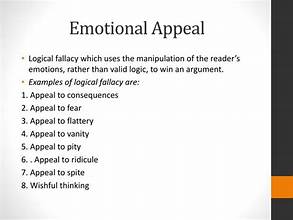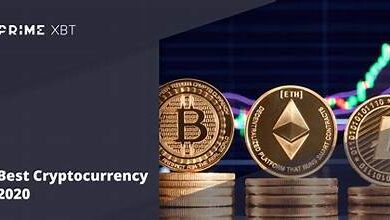Anonposted: Understanding the Growing Trend of Anonymous Online Content

The internet has revolutionized the way people communicate, share ideas, and express their opinions. Among the many trends that have emerged in the digital age, one that has gained increasing attention is the phenomenon of “anonposted” content. This term, though relatively new, refers to the growing trend of posting information, opinions, or even creative works without revealing one’s identity. In this article, we will explore the concept of anonposted, its implications for online communication, and how it is reshaping various online platforms and communities.
Table of Contents
The Concept of Anonposted Content
At its core, anonposted refers to the act of sharing content anonymously. Whether it’s a comment, a post on a social media platform, or even a blog entry, the content is shared without any identifying information linking it back to the author. This anonymity can be achieved through various means, such as using pseudonyms, encrypted services, or simply by opting not to reveal any personal details.
The growing interest in anonposted content is tied to several key factors:
- Privacy Concerns: As concerns about online surveillance and data collection increase, many individuals are seeking ways to protect their identity. Posting anonymously allows them to engage in conversations or share thoughts without the fear of being tracked or identified.
- Freedom of Expression: Anonymity can offer a sense of freedom, enabling people to express themselves without worrying about the consequences. This is particularly important in situations where individuals may want to voice opinions that are controversial, unpopular, or sensitive.
- Avoiding Censorship: In certain regions, censorship of the internet or social media platforms is prevalent. Anonposted content allows users to circumvent these restrictions, ensuring their messages are not filtered or suppressed.
- Accountability and Accountability Loopholes: On the flip side, while anonymity provides a sense of freedom, it can also lead to a lack of accountability. This creates a double-edged sword, as anonymous posts may sometimes be used to spread misinformation or engage in harmful behavior.
The Rise of Anonposted Content on Social Media
Over the past decade, social media platforms have played a significant role in the rise of anonposted content. While platforms like Facebook, Twitter, and Instagram encourage users to build profiles based on their real identities, there has been a noticeable shift toward more anonymous interactions. Many people choose to engage in discussions or share opinions under pseudonyms or by using private accounts to protect their privacy.
Platforms like Reddit, 4chan, and anonymous message boards have fostered entire communities centered around anonposted content. These platforms provide users with the opportunity to participate in conversations without revealing their real names, making them ideal spaces for discussing sensitive issues or seeking advice.
One of the most notable characteristics of anonposted content on these platforms is the lack of direct attribution. Posts may receive thousands of upvotes or replies, but the identity of the original poster often remains a mystery. This dynamic can create a sense of unity and openness, as individuals are less likely to be judged based on their social status, appearance, or personal history.
The Psychological Appeal of Anonposted Content

The appeal of anonposted content goes beyond privacy and security concerns. There is also a significant psychological component to why people choose to post anonymously. Studies in psychology suggest that anonymity can lower inhibitions and lead to more open, honest, and unfiltered expression.
- Reduced Social Pressure: When individuals post anonymously, they are free from the pressure of social expectations or judgment. This can lead to more authentic expressions of self, as people may feel liberated to share thoughts or opinions they would otherwise hesitate to reveal.
- Enhanced Creativity: Anonymity can foster creativity by allowing individuals to experiment with ideas or content without the fear of rejection. Writers, artists, and creators can produce work under the cover of anonymity, knowing that their identity will not affect how their work is perceived.
- Increased Honesty: Anonymity can also encourage more honest conversations, particularly on sensitive or taboo topics. Without the need to protect their reputation or fear social backlash, people may feel more comfortable speaking their minds.
Anonposted Content and Online Communities
Many online communities thrive on the idea of anonposted content. These communities often revolve around the exchange of ideas, opinions, and information without the constraints of personal identity. Reddit, for example, has numerous “subreddits” where individuals can share personal experiences or engage in discussions on various topics without revealing who they are.
These online communities provide a sense of belonging for individuals who may feel marginalized or misunderstood in the real world. For example, individuals struggling with mental health issues, sexuality, or relationships can share their experiences anonymously and receive support from others who may be going through similar challenges.
In these communities, anonposted content serves as a powerful tool for building connections. People who might otherwise feel isolated or stigmatized can find solace in knowing that they are not alone, and their identities remain protected.
Anonposted Content in the Context of Online Activism

In recent years, anonposted content has played a significant role in online activism. Activists and advocates often use anonymity as a tool for organizing and raising awareness about social, political, or environmental issues. Anonymous accounts, forums, and blogs allow individuals to speak out against injustices, expose corruption, or rally for change without the fear of personal retribution.
A prime example of this is the hacktivist group Anonymous, which has used anonposted content and online anonymity to carry out various campaigns and protests. By remaining anonymous, the members of Anonymous have been able to take bold stances on issues like government surveillance, freedom of speech, and social justice.
The ability to post anonymously allows activists to push for change without revealing their identities, which can protect them from retaliation, harassment, or legal consequences. However, it also raises ethical questions about the responsibility that comes with anonymity. When individuals can act without consequence, it can be difficult to hold them accountable for their actions, which has led to both praise and criticism of the anonymous nature of these movements.
The Risks and Challenges of Anonposted Content
While there are many benefits to posting anonymously, there are also significant risks and challenges associated with anonposted content. The primary concern is the potential for misuse, as anonymity can sometimes encourage harmful behavior.
- Misinformation and Disinformation: One of the biggest challenges with anonposted content is the spread of false information. Without any identifying information, it becomes difficult to verify the credibility of a post. This can lead to the circulation of fake news, conspiracy theories, and misleading content.
- Cyberbullying and Harassment: Anonymity can embolden individuals to engage in cyberbullying or harassment without fear of being caught. The lack of accountability makes it easier for malicious actors to target others, especially vulnerable individuals.
- Trolling and Hate Speech: Unfortunately, the anonymity provided by anonposted content can also foster toxic behaviors like trolling, hate speech, and personal attacks. Without the social consequences that typically accompany public discourse, individuals may feel free to express extreme or offensive opinions.
- Ethical Dilemmas: Another challenge is the ethical dilemma posed by anonymous actions. When individuals post anonymously, it can be difficult to determine whether they are acting in good faith or simply to create chaos. While anonymity can protect those who are speaking out for justice or social change, it can also provide cover for those seeking to cause harm.
Also read Blueflame Publishingnet: The Future of Digital Publishing and Innovation
Conclusion: The Future of Anonposted Content
The rise of anonposted content reflects the growing desire for privacy, freedom of expression, and protection from online surveillance. As more people turn to anonymous platforms and communities, the dynamics of online discourse are shifting. Anonymity allows for the creation of spaces where individuals can engage without the constraints of their identity, enabling the free exchange of ideas, opinions, and creativity.
However, the anonymity that enables the positive aspects of anonposted content also comes with its share of risks and challenges. The ability to post without accountability can lead to the spread of misinformation, harassment, and toxic behavior. As the internet continues to evolve, finding a balance between anonymity and responsibility will be essential in ensuring that anonposted content remains a positive force in the digital landscape.
In the future, it is likely that anonposted content will continue to evolve, shaped by both technological advances and societal attitudes toward privacy and identity. Whether used for activism, personal expression, or simply to connect with others, anonposted content is here to stay—and its influence will only continue to grow.




